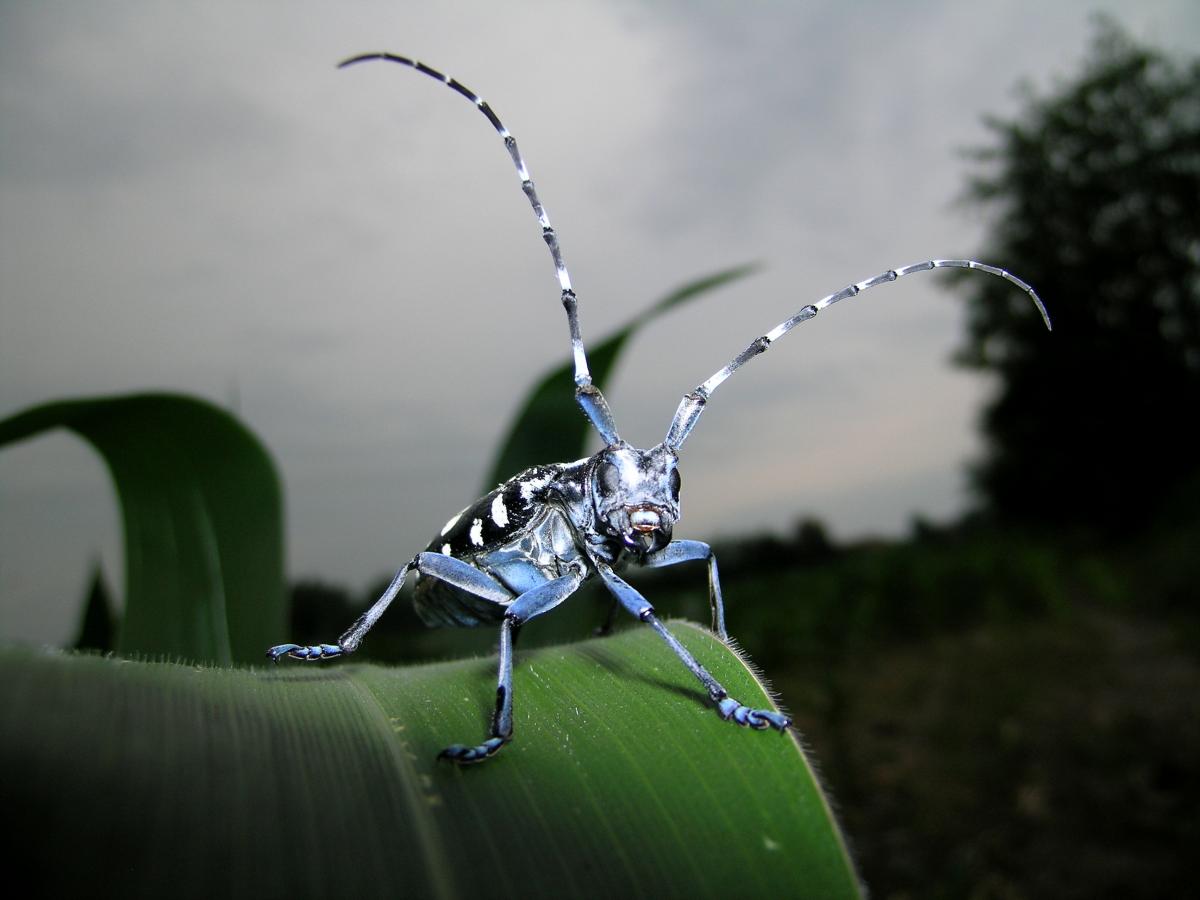 Food security and the environment are threatened by pests moving in trade creating unprecedented impacts. For instance, olive trees are under attack in southern Italy by the bacteria Xylella fastidiosa, reducing harvest by 40 to 50%. Eradication measures against fruits flies (Bactrocera spp.) cost annually several million dollars to maintain agricultural production. The Water Hyacinth (Eichhornia crassipes), an invasive aquatic plants that disrupts sensitive aquatic ecosystems, causes biodiversity loss and affects health and food security of local populations.
Food security and the environment are threatened by pests moving in trade creating unprecedented impacts. For instance, olive trees are under attack in southern Italy by the bacteria Xylella fastidiosa, reducing harvest by 40 to 50%. Eradication measures against fruits flies (Bactrocera spp.) cost annually several million dollars to maintain agricultural production. The Water Hyacinth (Eichhornia crassipes), an invasive aquatic plants that disrupts sensitive aquatic ecosystems, causes biodiversity loss and affects health and food security of local populations.
The International Plant Protection Convention (IPPC) aims to protect cultivated and wild plants by preventing the introduction and spread of pests. In order to raise awareness on why preventing pests is essential for protecting agriculture and the environment, the IPPC Secretariat is launching the photo contest “Pests without Borders” to highlight three thematic areas:
 Food security and the environment are threatened by pests moving in trade creating unprecedented impacts. For instance, olive trees are under attack in southern Italy by the bacteria Xylella fastidiosa, reducing harvest by 40 to 50%. Eradication measures against fruits flies (Bactrocera spp.) cost annually several million dollars to maintain agricultural production. The Water Hyacinth (Eichhornia crassipes), an invasive aquatic plants that disrupts sensitive aquatic ecosystems, causes biodiversity loss and affects health and food security of local populations.
Food security and the environment are threatened by pests moving in trade creating unprecedented impacts. For instance, olive trees are under attack in southern Italy by the bacteria Xylella fastidiosa, reducing harvest by 40 to 50%. Eradication measures against fruits flies (Bactrocera spp.) cost annually several million dollars to maintain agricultural production. The Water Hyacinth (Eichhornia crassipes), an invasive aquatic plants that disrupts sensitive aquatic ecosystems, causes biodiversity loss and affects health and food security of local populations.
The International Plant Protection Convention (IPPC) aims to protect cultivated and wild plants by preventing the introduction and spread of pests. In order to raise awareness on why preventing pests is essential for protecting agriculture and the environment, the IPPC Secretariat is launching the photo contest “Pests without Borders” to highlight three thematic areas:
- Pests. Pests are defined by the IPPC as any species, strain or biotype of plant, animal or pathogenic agent injurious to plants or plant products. Pests include insects, virus, bacteria, nematodes, as well as invasive plants. The first step in taking action against pests is to identify them and their symptoms.
- Pests affecting food security and the environment. Showing the huge detrimental impact of pests to cultivated and wild flora will help increase recognition and understanding of the problem they cause.
- Managing pests. Identification, inspection, certification, surveillance, eradication and containment are essential measures, among others, undertaken everyday to prevent and manage pests that citizens are not aware of.
Click here to read the full news published on Phytosanitary website.

